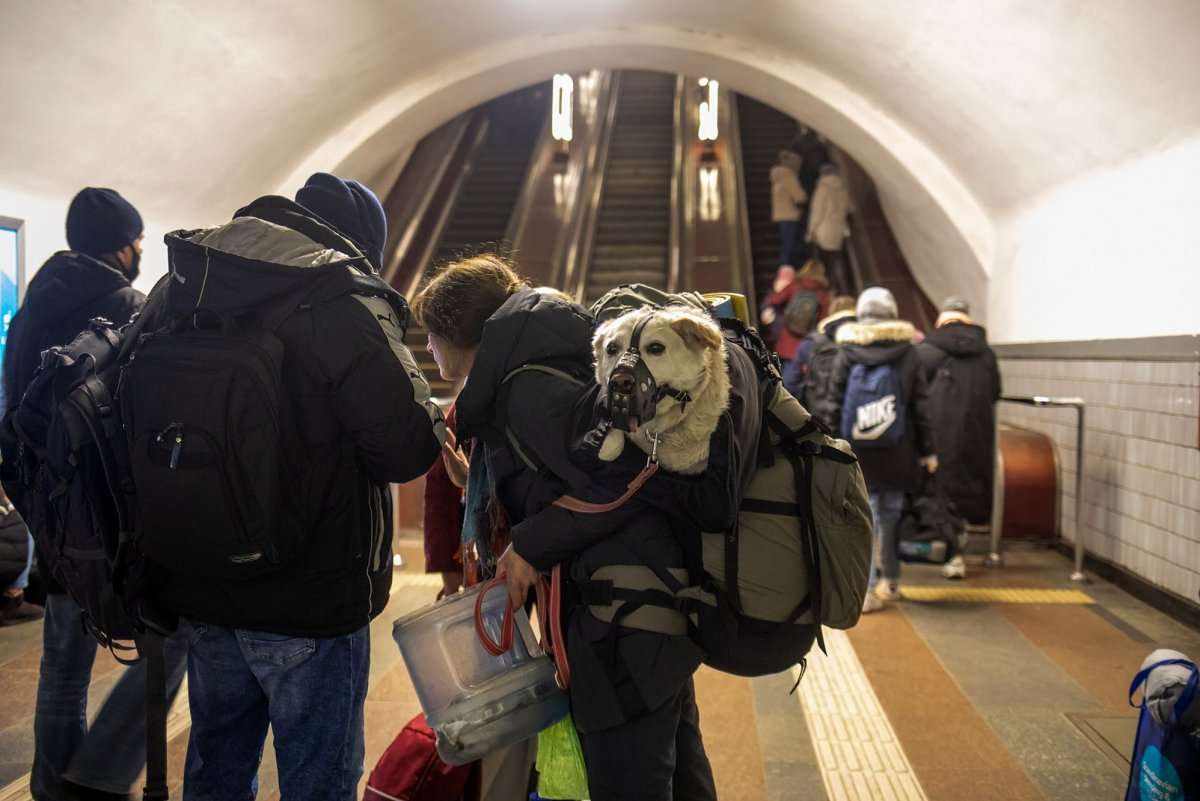PTSD, also known as the post-traumatic stress syndrome, reflects the struggle humans and animals often manifest due to unwanted and traumatic events. Current ongoing Ukraine- Russia war 2022 has shown such a picture of helplessness, bravery, and indomitable spirit of people to the world. The conflict has affected human civilisation and increased the life struggle of animals. PTSD in pets is one of the primary outcomes of such situations, similar to humans’. Pet parents in war-torn Ukraine are struggling to keep their pets safe as they are fleeing Ukraine for their safety.
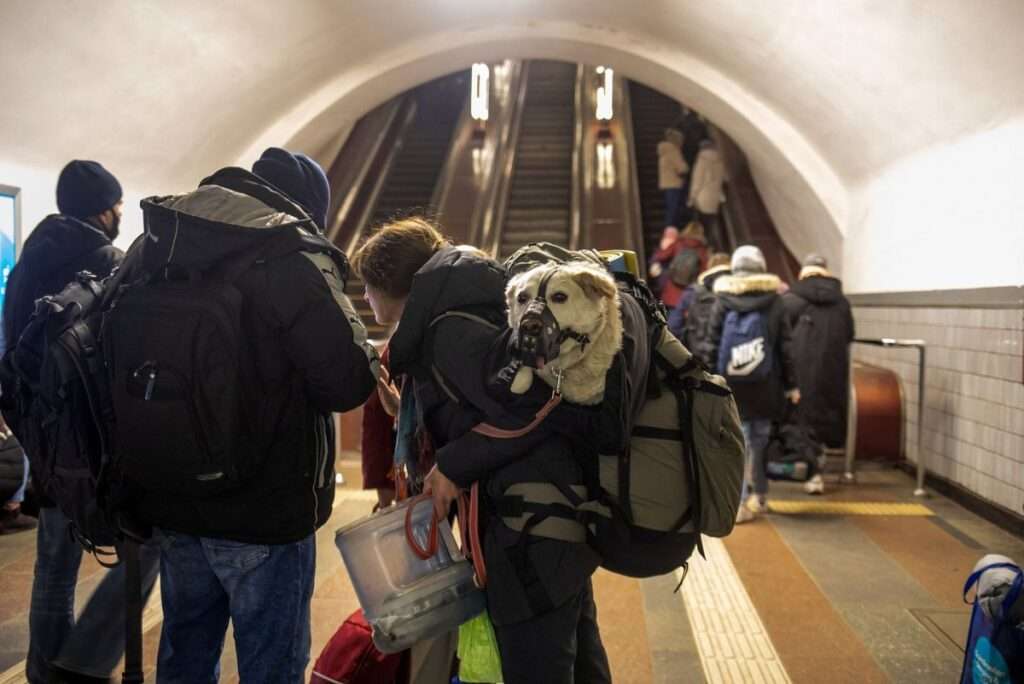
We have witnessed shelling and bombardments over Ukraine that have shaken every living being in that region. Pets and animals are no exception in this case. We have heard the plights of humans suffering due to war. Did we ever listen to what animals go through in such a situation? Let us understand from a voiceless’s perspective.
The mindset of pets during a war-torn situation
Both pets and pet parents are suffering right now due to the horrifying outcomes of political clashes. Leaving one’s home and fleeing to another country for their lives created impeccable scars on people and pets simultaneously. If we focus on the mental status during the war-torn situation, the pain comes with far-reaching impacts.
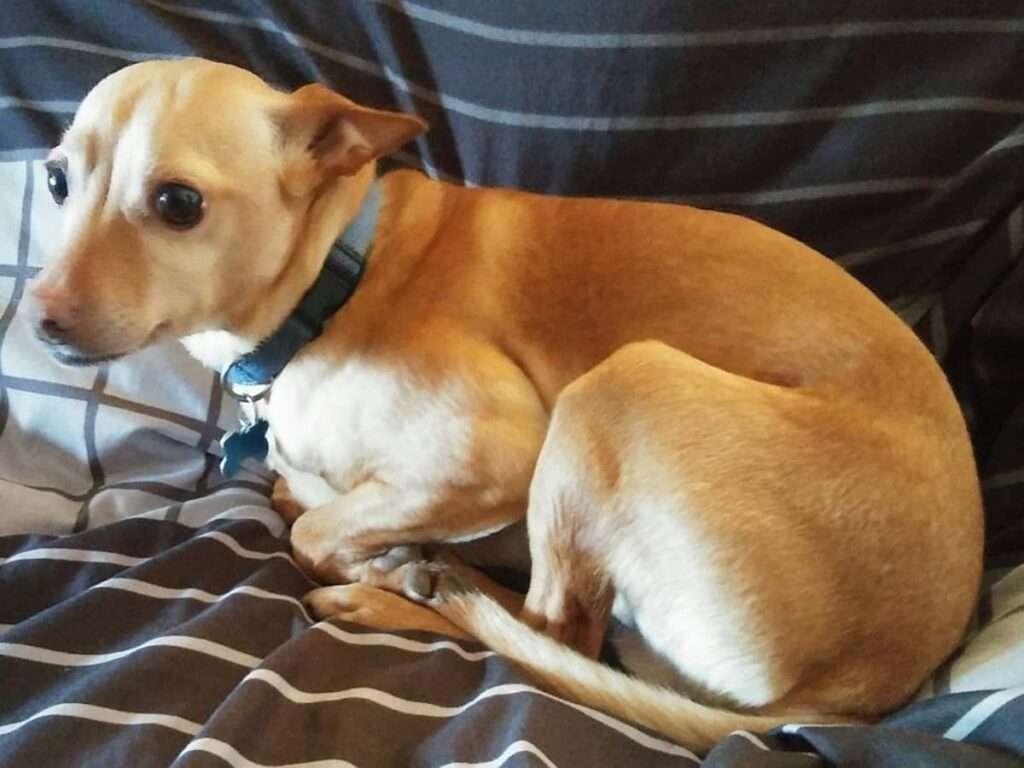
Such a war-torn situation often creates heavy influence over the mental health of dogs and other animals. Humans and animals are very attached to their homes, considering it their safe zone. When we talk about the mindset of animals, we often miss the trauma and fear in their eyes. When the Russia-Ukraine war started, many inhabitants were forced to flee their homes to a safer place. Most people fought teeth and nails to keep their pets with them, but not everyone is lucky as Rishab and Maliboo (an Indian student and his pet dog who returned safely to Dehradun).
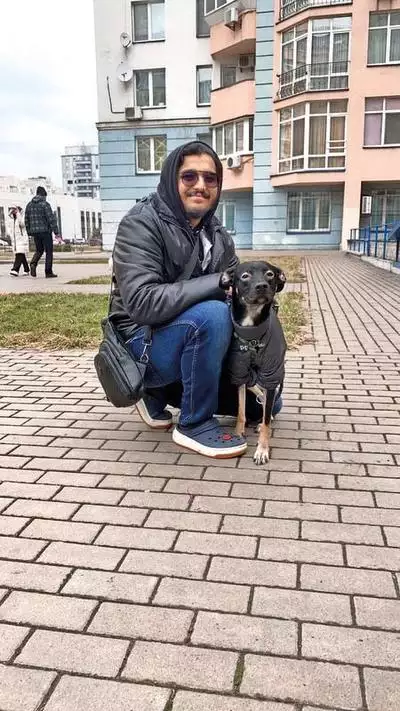
Many pet parents are obliged to leave their pets behind. It can mentally devastate both the pet parents and their pets. Pets in a war-torn situation are confused, afraid of the explosive sounds going off due to continuous air raids. Those animals left behind terribly miss their families with a sense of abandonment. It delivers an irreplaceable influence over mental stability in pets. Post Traumatic Stress Syndrome is the related outcome of such a situation.
Also, read the related article: Harassment of Dog Owners in Rented Apartments-How to Deal With It.
How can we locate PTSD in dogs?
Just like humans, dogs and other animals suffer from PTSD too. Post-traumatic stress syndrome can create significant health issues among dogs. Dogs suffering from it basically manifest the sign from very early stages, and we, as their parents, often miss out on those signs. There are definite signs of PTSD in dogs that can help us consider immediate vet consultation for our four-legged children.
As we all can understand, the ongoing Ukraine-Russia war has shed light on mental health issues in pets. This is where we will fail as parents to our four-legged babies if still, we are not getting concerned about this problem in pets. Post-traumatic stress syndrome is extreme stress and anxiety caused by traumatic events such as war, accidents, brutality and death.
Signs and symptoms of PTSD in dogs
The signs of PTSD in dogs often get misjudged by dogs’ behavioural issues among many pet parents. This results in wrong treatment or no treatment at all. This article will try to manifest the sign of PTSD to bring up the plight of Ukrainian animals that caused collateral damage. This could also become the origin of mental health issues in pets with a larger population in Ukraine. Not only in the war-torn country, but it is also a source of spreading awareness to all the pet owners in the world. Therefore, the signs are;
- Increased unresponsiveness towards the surrounding environment.
- Change in the relationship with the pet parent or handler.
- Failure to understand commands or do daily routine work.
- Sleeping more than usual.
- Reluctant to interact much or to leave the side of their humans.
- Escaping on a slight voice raise and taking shelter in their safe place (under the table, bed or corner of the closet).
- Getting startled easily by a touch or a gentle kiss.
- Sometimes becoming aggressive or shivering in public.
- Other general signs of anxiety, stress and depression (licking paws continuously, lethargy).
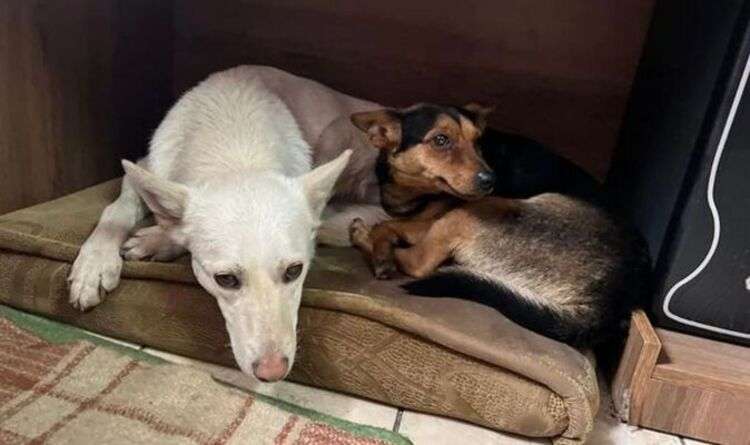
These signs are pretty admissive of trauma influencing the healthy mental state of our pets. Here, a few instances of animal suffering in Ukraine are essential to manifest. It will highlight the struggle, fear and unresolving confusion among animals while exposed to untoward events.
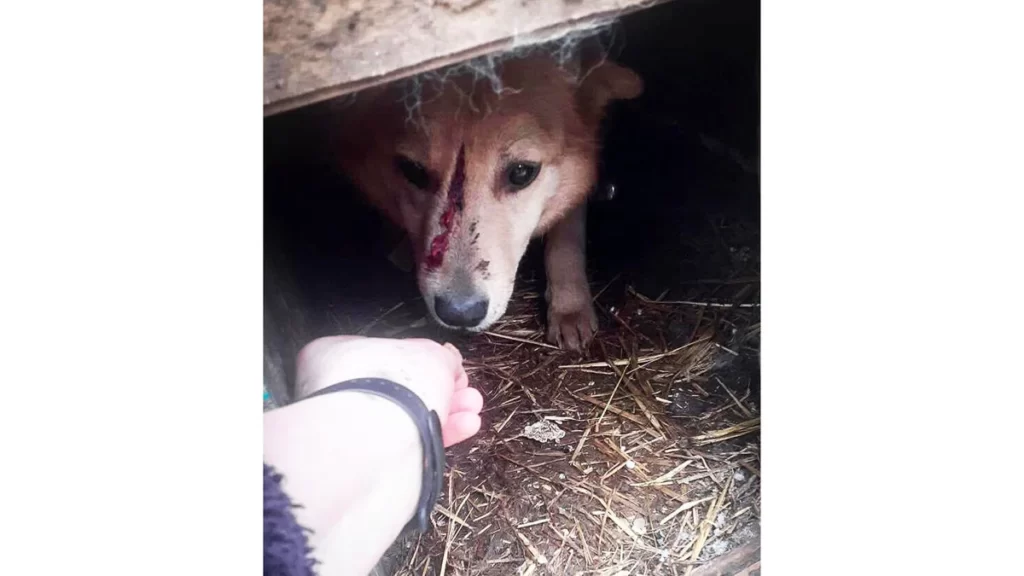
The animals will suffer from severe stress, anxiety and depression in such a situation. Such trauma will lead to less interaction with humans, fear and anxiety among animals.
Also, check out the latest article: “Dogs With Hypothyroidism- How To Deal With 7 Home Diet.
How PTSD in dogs can be handled?
A misconception is that pups exposed to military affairs or military services dogs eventually suffer from mental health issues. But domestic pets can also experience it due to different reasons. It might occur for several reasons, including abandonment, abuse, loneliness, exposure to explosions, and external attacks by other animals. Pet parents could do many things to deal with these issues, even in emergency situations. The measures for dealing with the challenge are;
- A combination of behavioural therapy and medication for the pup.
- Playtime with other socialised dogs
- More frequent exercise with simulation therapy.
- Vet prescribed antidepressants or meds like beta-blockers.
Along with this, desensitising therapy is another effective way of dealing with canine PTSD. Though it is impossible to conduct medical treatment for most people fleeing Ukraine in an emergency situation. But the therapy refers to the intensity of stress applied for the pup at a low level. Eventually, the power will be increased to make the pet accustomed to the stress level and enhance their tolerance.
Moreover, pet parents need to be patient and loving towards their pets while recovering. Pet parents need to be constant in their actions in caring for their pets daily. Keeping in touch with veterinarians is also essential. Ukrainian pet owners should consider specific natural methods to help their pups calm down in such perilous times.
- Preparing a safe place for the pup to take a nap or rest.
- Involve exercise or a short walk in their daily routine.
- Choose a proper diet over medication for the time being.
- Offer to cuddle but also allow your pet to choose.
- Be calm while talking to your pet and avoid voice raises or shouting.
- Use natural calming remedies such as aroma oils, low voice singing, or gentle massage to relax their brain.
Closing up
While closing up, the final thoughts dominate that war is no solution for anything. Our hearts go out to the Ukrainian people and their pets to show support in such dark hours. The Ukraine Russia war has become the cradle for PTSD in pets and their owners. This has conveyed a powerful message to us- that we need to look for their mental health and physical well-being as parents to our four-legged children.

